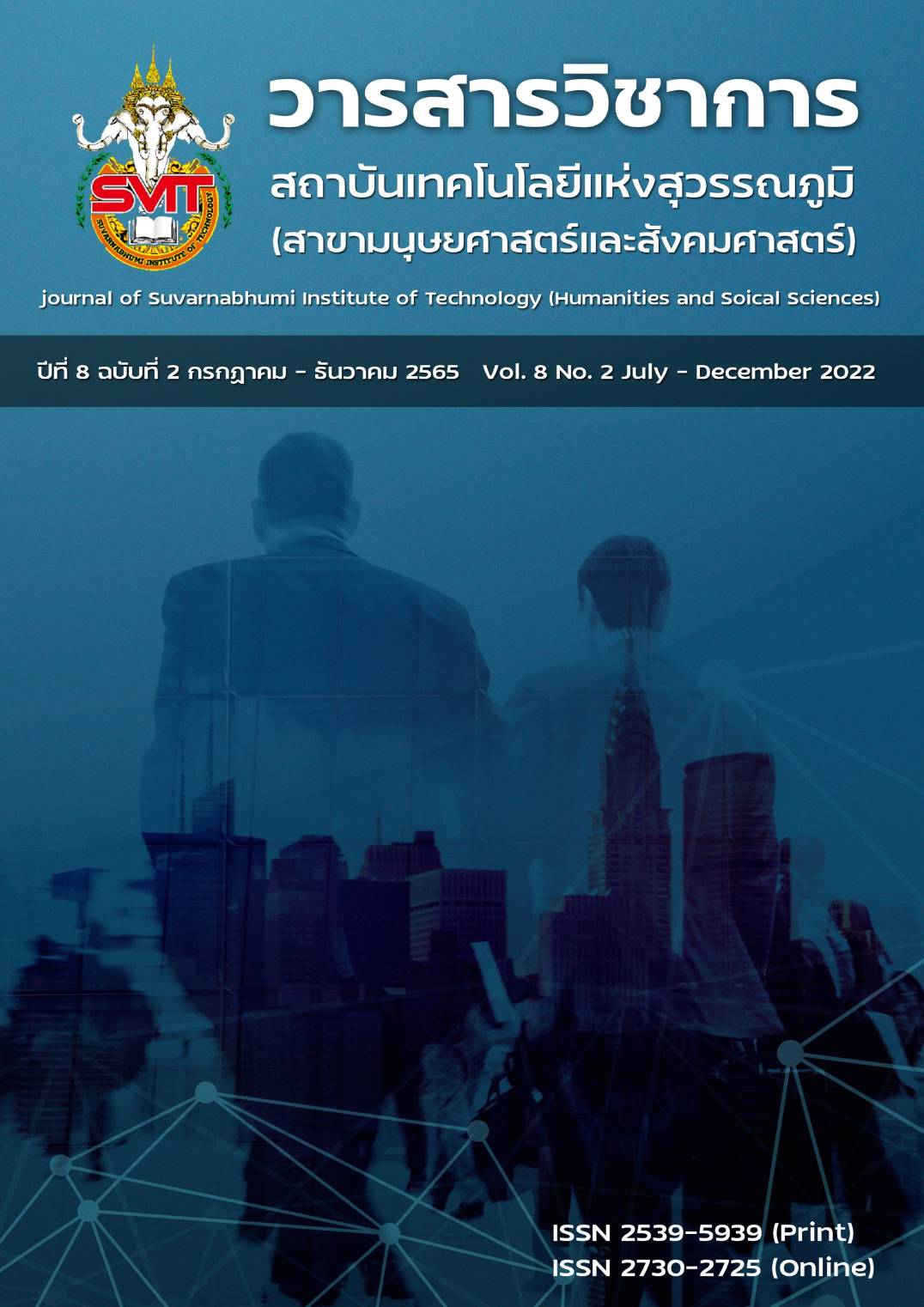EDUCATION MANAGEMENT AND PERFECT HUMAN DEVELOPMENT
Keywords:
Humanity education, Human developmentAbstract
Education is something that always goes hand in hand with learning. Both the importance of learning will enable human beings to learn and be trained to continually improve. Humans can learn on their own to survive partly. and can learn by another part of the educational process The important goal of education is to change the learner from the unknown to the one who knows, and this can be seen from the way of thinking, the consciousness that has changed from when he did not know it and the behavior has changed from before But it is unfortunate that The education that exists today creates learners to be mere remembrances and mere remembrances for exams and competitions. Create for students to have a walking textbook condition. without taking the process "Changing people Social Creation” is an important goal of education. This makes education like a word that Luang Por Buddhadasa said, "Education of the Duan Dog" that lacks the way to develop "people" for a complete "human being" with knowledge and virtue.
References
ขันทอง วิชาเดช. (2547). พุทธศาสนากับการพัฒนาค่านิยมทางการศึกษาในสังคมไทย (วิทยานิพนธ์มหาบัณฑิต, มหาวิทยาลัยบูรพา).
ประเวศ วะสี. (2553). ระบบการศึกษา ที่แก้ความทุกข์ยากของคนทั้งแผ่นดิน. กรุงเทพฯ: ศูนย์จิตปัญญาศึกษา มหาวิทยาลัยมหิดล.
พระเทพโสภณ (ประยูร ธมฺมจิตฺโต). (2546). ทิศทางการศึกษาไทย. กรุงเทพฯ: โรงพิมพ์มหาจุฬาลงกรณราชวิทยาลัย.
พระธรรมปิฎก (ป.อ. ปยุตฺโต). (2539). สถานการณ์พระพุทธศาสนากระแสไสยศาสตร์. (พิมพ์ครั้งที่ 2). กรุงเทพฯ: มูลนิธิพุทธธรรม.
พระธรรมปิฎก (ป.อ. ปยุตฺโต). (2539). การศึกษาเพื่ออารยธรรมที่ยั่งยืน. (พิมพ์ครั้งที่ 3). กรุงเทพฯ: มูลนิธิพุทธธรรม.
พระพรหมคุณาภรณ์ (ป.อ. ปยุตฺโต). (2541) ธรรมนูญชีวิต พุทธจริยธรรมเพื่อชีวิตที่ดีงาม. สืบค้นจาก https://www.watnyanaves.net.
พระราชวรมุนี (ประยุทธ์ ปยุตฺโต). (2527). ค่านิยมแบบพุทธ. กรุงเทพฯ: เทียนวรรณ.
พระราชวรมุนี (ประยุทธ์ ปยุตฺโต). (2529). พุทธธรรม. พิมพ์ครั้งที่ 3. กรุงเทพฯ: มหาวิทยาลัยมหาจุฬาลงกรณราชวิทยาลัย.
พระราชวรมุนี (ประยุทธ์ ปยุตฺโต). (2530). ทางสายกลางของการศึกษาไทย. กรุงเทพฯ: อมรินทร์ พรินติ้ง กรุ๊ฟ.
พุทธทาสภิกขุ. (2517). การศึกษา คืออะไร. กรุงเทพฯ: สมชายการพิมพ์.
ภูมิพลอดุลยเดช,พระบาทสมเด็จพระปรมินทรมหา. (2549). คำพ่อสอน: ประมวลพระบรมราโชวาทและพระราชดำรัสเกี่ยวกับความสุขในการดำเนินชีวิต. (พิมพ์ครั้งที่ 2). กรุงเทพฯ: สำนักงานกองทุนสนับสนุนการสร้างเสริมสุขภาพและมูลนิธิสดศรี-สฤษดิ์วงศ์.
องค์การยูเนสโก. (2539). Learning: The Treasure Within. 1996
Downloads
Published
Issue
Section
License
Copyright (c) 2022 Suvarnabhumi Institute of Technology

This work is licensed under a Creative Commons Attribution-NonCommercial-NoDerivatives 4.0 International License.
The articles published are copyrighted by the Sarasas Journal of Humanities and Social Science. The opinions expressed in each article in this academic journal are those of the individual authors and do not reflect the views of Sarasas Suvarnabhumi Institute of Technology. The authors are solely responsible for all aspects of their respective articles. Any errors or inaccuracies in the articles are the sole responsibility of the authors.



